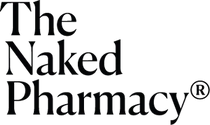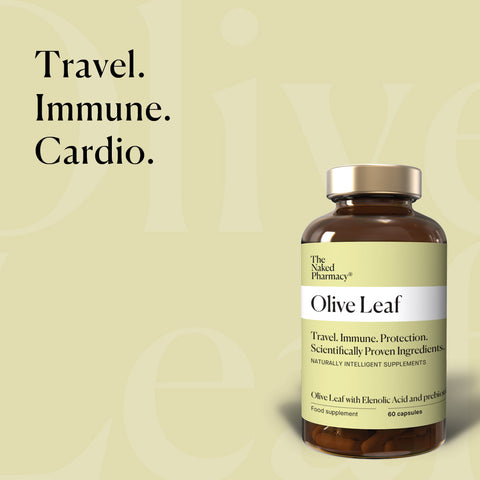Olive Leaf
At The Naked Pharmacy, we ensure that all of our supplements are made with effective strength bioactives, so they are clinically proven to work.
We aim for each supplement to be scientifically supported by multiple randomised placebo-controlled studies. All clinical trial studies we use to support our supplements are undertaken on human patients, using the exact same dosage and formulation of the product. The scientific studies are published in peer review journals.
What can olive leaf do for you?
Research is now showing that Olive Leaf with Elenolic Acid (ELA) is a safe and effective natural supplement which has been clinically proven to help protect and support your immune system.
It can be taken either to help prevent you getting ill or during periods of illness to aid recovery. Olive leaf that is grown in optimum climatic conditions, such as in Northern Spain, has been shown to contain unusually high active oleuropein levels which are then converted to a high concentration of the bioactive elenolic acid (ELA).
ELA is the primary bioactive in our Olive Leaf supplement. We know it’s most effective at a concentration of 4% so that’s what you’ll find in our supplement. If you’d like for more information on the available evidence which details and supports the efficacy of olive leaf, follow the links below.
The Studies
The scientific studies to support our claims on olive leaf and elenolic acid are published in the following peer review journals:
Role of oleic acid in immune system; mechanism of action; a review by Carrillo C et al, 2012.
The aim of this study was to collate all the reports available in order to analyse as well as summarise all the knowledge concerning oleic acid.
The authors concluded that oleic acid could be reported as an anti-inflammatory fatty acid playing a role in the activation of different pathways of immune competent cells.
Glossary of Terms
There are a few key terms to be aware of when reviewing these studies:
Randomised clinical trial: A clinical trial in which the participants are assigned randomly (by chance alone) to different treatments.
Double-blind study: A study in which neither the participants nor the experimenters know who is receiving a particular treatment. This procedure is utilized to prevent bias in research results. Double-blind studies are particularly useful for preventing bias due to demand characteristics or the placebo effect.
Placebo: An inactive treatment used in a clinical trial, sometimes referred to as a “sugar pill.” A placebo-controlled trial compares a new treatment with a placebo, in order to give greater confidence that the result is only due to the test/active ingredient.
P-value: The probability of obtaining the observed results of a test. The lower the p-value is, the more confident we can be of a true result. For example, a p- value of 0.001 confirms a result as 99.9% accurate.







